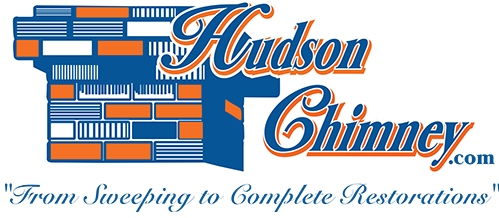by Mark Hudson | Nov 5, 2016 | Storm Damage
At Hudson Chimney, we know firsthand the affect of recent storms on our neighbors in Jacksonville and surrounding areas. Our technicians live in the area, and know the damaging affects that high winds and water have on their homes.
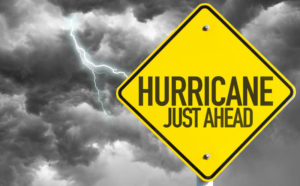 Hurricanes and tropical storms bring with them strong winds. These winds can can rip up flashing, damage chase pans and chimney caps, damage masonry, wear down chimney crowns and more. When these important parts of the chimney are damaged or missing, the water then has access to the chimney system. The water alone causing extensive damage itself. In our tropical climate, it’s important to repair damages like this as soon as possible. The best place to start is with a chimney inspection.
Hurricanes and tropical storms bring with them strong winds. These winds can can rip up flashing, damage chase pans and chimney caps, damage masonry, wear down chimney crowns and more. When these important parts of the chimney are damaged or missing, the water then has access to the chimney system. The water alone causing extensive damage itself. In our tropical climate, it’s important to repair damages like this as soon as possible. The best place to start is with a chimney inspection.
We Provide Inspections
According to the Chimney Safety Institute of America (CSIA), you should schedule a level two chimney inspection if your chimney has experienced a change or a natural occurrence that might have compromised the integrity or safety of the chimney system, including hurricanes. Our technicians provide expert and prompt service. In addition, our inspections include a video scan of the chimney system to provide a comprehensive report for your records.
We Will Sweep Your Chimney
The chimney sweep is vital to the safety and efficiency of your chimney, especially if your chimney cap was lost during the storm. During your chimney sweep, our technicians will remove all storm debris from the chimney. Also, removing the naturally occurring buildup of creosote on the chimney walls.
Common Storm Repairs for Your Chimney
Our experience of over 30 years of operation in the area has taught us what to look for first when dealing with storm damage.
- Masonry and Fireplace Repair
Our technicians will look for and repair cracks, receding mortar joints, crumbing or cracking chimney crowns, and any other type of masonry shifting or damage. This commonly occurs due to high winds during a storm, and is worsened by prolonged water exposure.
- Chimney Relining
We look for damage to the flue liner. Depending on the type of liner in your chimney, our technicians may choose to replace it with a more durable liner. However, our chimney sweeps may choose to apply HeatShield® cerfractory sealant. This product is applied to an existing flue liner, leaving a new, heat resistant surface to your chimney liner.
- Flashing Installation and Repair
We look for flashing damage, because any damage at all will affect it’s durability. A single dent can affect the way the water flows across it. This may allow it to penetrate the flashing and the roof. Consequently causing water damage not just within the chimney, but in the home itself.
Hudson Chimney offers a full menu of chimney services and we want to be your choice for storm repairs. To find out more about waterproofing and damage prevention contact a Hudson Chimney professional today.
by Mark Hudson | Oct 24, 2016 | Modern Chimney Standards
The use of fire for home heating is centuries old, as well as the need for a ventilation system. Fireplaces and chimneys have changed in major ways through the years. However, how the chimney works remains the same.
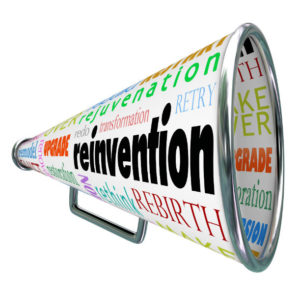 Your Classic Chimney
Your Classic Chimney
Many older chimneys are missing important parts that have been found to be vitally important in recent years. Many older masonry chimneys do not have a chimney liner, or they have an old clay tile liner. In other instances, older chimneys are too big for the size of the fireplace or insert. Chimney caps are also a part of the chimney that are often overlooked by the older generation of homeowners. They have been missing on classic chimneys for years.
There is a reason why these elements have been added to modern standards of chimney and fire safety. The fire industry is constantly changing, which is why chimney professionals renew their training regularly. It’s also why fire codes and municipal standards are always changing as well.
Modern Standards
The industry standard for chimney sweep credentials is the Chimney Safety Institute of America (CSIA). The CSIA Certified Chimney Sweep® (CCS) credential stands for excellence and training in the ever-changing field. There is a need for such a standard. In addition to have a similar need for manufacturing, installation, and operation standards for everyone’s safety.
The National Fire Protection Association (NFPA) is the leading information and knowledge resource on fire, electrical, and related hazards. The CSIA became the industry standard for professional chimney sweeps. The NFPA became the industry standard for safe ventilation, installation of fire-burning appliances, and the construction and installation of chimneys, fireplaces, and venting systems.
The NFPA 211 standards address:
- Design, installation, maintenance, and inspection.
- Chimneys, fireplaces, venting systems, and solid fuel-burning appliances.
- Residential, commercial, and industrial occupancy.
Comprehensive provisions address general requirements as well as specific types of units. The appliances are actually manufactured with these codes in mind. So, chimney sweeps are well-abreast of them when they install, maintain, replace, or repair the appliances and chimney systems. This is why you should never install your own fireplace or furnace. Only a certified chimney sweep can install the appliance and properly match it with the perfect venting products.
Hudson Chimney has changed with the industry standards, as we’ve been full-time chimney sweeps since 1979. Our technicians are experienced and trained to bring your classic chimney up to modern standards.
Ready to let someone bring your chimney system into the modern era? Also, keeping your safety and comfort in mind? Call Hudson Chimney today at 904-282-4159. For your convenience you can also request an appointment online.
by Mark Hudson | Sep 29, 2015 | Chimney Safety Week
Whenever September arrives, Hudson Chimney knows that not only will we be busy preparing chimneys in the Jacksonville, Florida area for the upcoming fireplace season, but we will also be getting ready to celebrate with the Chimney Safety Institute of America (CSIA) during their annual National Chimney Safety Week, which occurs the last week of September (September 27 – October 3, 2015). This is an opportunity for chimney professionals across the country to educate people about fire and chimney safety before the weather starts getting cold. A fireplace and chimney system can present many hazards, so it is important to know and follow safety practices whenever you use this part of your home. The last thing you would want to happen this winter is a devastating chimney fire because you neglected to schedule your annual chimney inspection. The Director of Education for the CSIA, Ashley Eldridge says, “Fires in chimneys can start for a variety of reasons. They can be poorly built, or incorrectly designed, or the chimney flue sees a buildup of creosote over time. If you’ve ignored the need for an inspection, you are taking a risk.” Other than having your chimney professionally inspected every year, the CSIA offers other things you should do to reduce your risk of a chimney fire, and we would like to share them with you.
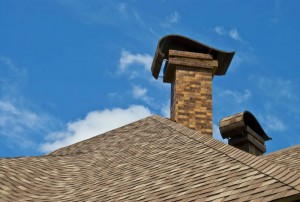
Your chimney is not the only part that should be inspected.
Your wood-burning or gas fireplace should also be examined by a professional to be sure no potential hazards exist. A wood-burning firebox could also have a large buildup of creosote, and this can be an extremely dangerous situation. Ensure your firebox is free from any creosote accumulation before you light a fire inside it. Gas and propane logs may not produce any soot or creosote, but they can deposit corrosive substances within your chimney. Ceramic logs in gas fireplaces can also deteriorate and clog the vents and pilot light. Having the logs checked in your gas fireplace can prevent chimney fires and other fireplace issues that can happen when the pilot light and other connectors are not correctly working.
Be prepared for all severe weather hazards.
To be sure you are ready for a severe storm, such as a hurricane, the CSIA suggest three steps:
1. Know your risk.
Before leaving home in the morning, check the weather reports to be sure you are prepared for any coming weather event.
2. Take action!
Find out more about what kind of weather your area should expect this fall. Make an emergency supplies kit. Come up with a communication plan for your entire family in case of an emergency.
3. Be a force of nature.
If a hurricane or other severe weather storm is heading your way, spread the word! Inspire your friends and family by letting them know how you have prepared for the potentially bad weather.
If you would like to learn more about National Chimney Safety Week, contact us at Hudson Chimney. We are happy to educate you on fire prevention!
by Mark Hudson | Aug 3, 2015 | Chimney Video Inspection
Whenever your chimney is inspected by one of our Chimney Safety Institute of America (CSIA)-certified chimney sweeps from Hudson Chimney, you will be able to see exactly what we saw, thanks to video scans from the Chim-Scan Closed Circuit Internal Evaluation System. A video scan inspection can be extremely valuable, especially if damage is found to your chimney during the inspection. Our sweeps benefit from these video scans as well as they are able to see every inch of the inside of your chimney when they use this camera technology. We would like to answer some of the most frequently asked questions we have encountered about Chim-Scan video inspections.
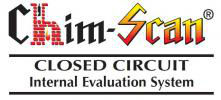
What exactly is the Chim-Scan Closed Circuit Internal Evaluation System?
Explained by the company that creates and manufactures this system, a Chim-Scan is a remote imaging video camera that has been specifically engineered to be moved up and down inside a chimney. This provides both our chimney sweep and the homeowner a video scan of each inch of the interior walls of a chimney. When this Chim-Scan system is used, everyone can see an up-close view of parts of your chimney that are extremely difficult to see by regular means.
What makes a video scan important in a chimney inspection?
Required by the National Fire Protection Association (NFPA) in their Level 2 and Level 3 chimney inspections, video scans are so important to Hudson Chimney that we also use them in our basic Level 1 inspections. One of the main reasons why we feel this way is the ability of the Chim-Scan camera to spy every inch of your chimney’s interior. This allows us to spot hazardous damage that we could have missed seeing if we did not use this tool. You could have damage to the inside of your chimney that needs to be repaired before you can safely use your fireplace. An example of this damage are cracks that could allow the poisonous gases created by combustion to enter your home. Also, if you need to report any damage to your home insurance agent, a video scan can give you the evidence your agent will need to file a claim.
What are the other advantages of video scan inspections?
Along with discovering hard-to-see damage, a video scan inspection can also be used to determine details about damage from a chimney fire, uncover improper repair work, and find animals and/or their nests within a chimney. A crucial part of a chimney fire investigation, a video scan can help diagnose the cause of the fire and the amount of any damage which happened in the fire. You will also be provided with written reports, photographs, and/or video recordings after a video scan inspection.
Discover the value of a video scan inspection. Contact Hudson Chimney today to schedule your annual chimney sweeping and inspection.
by Mark Hudson | Jul 23, 2015 | Chimney Sweeping Before Fall
Although it may seem far away, the month of September will be here before you realize it. Did you realize that many national fire safety groups like the National Fire Protection Association (NFPA) and the Chimney Safety Institute of America (CSIA) recommend that you have your chimney professionally swept and inspected before lighting the first fire of the year? The reason behind this recommendation is to be sure that your fireplace and chimney system works properly and safely so that you will not experience any hazardous problems during the winter. September begins the busiest time of the year at Hudson Chimney for our CSIA-certified chimney sweeps. Their schedule will be packed full through December cleaning chimneys across the Jacksonville area, and scheduling an appointment during these months can be difficult. You may have to wait several weeks to be able to arrange your annual chimney sweeping on the date and time you need. We suggest to our customers to go ahead and schedule this important chimney maintenance task in the late summer before fall arrives to be able to get the appointment at a time that is convenient. To let you know what you can expect from a cleaning from our chimney sweeps, we would like to tell you more about this service.
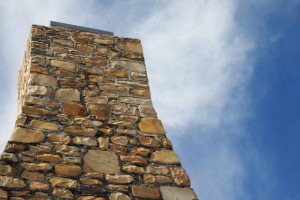
Hudson Chimney takes care to keep your home clean as we sweep your chimney.
Our CSIA-certified chimney sweeps begin the sweeping process by covering the area surrounding your fireplace with tarps to protect your home from soot, dust, and other debris. A high-speed vacuum cleaner will also be set up over your fireplace opening to keep dirt from entering your house.
Hudson Chimney sweeps your chimney clean from its top to its bottom.
Our sweeps will use hand brushes as well as brushes on rods to scrub the walls of your chimney clean from the floor of the firebox all the way up to the top of the flue. Your damper will also be cleaned, inspected, and adjusted. Our chimney sweeps will focus on removing all of the accumulated creosote deposits to prevent a dangerous and possibly devastating chimney fire. Creosote is a natural compound which is the residue of the byproducts of combustion of a wood-burning fire and can be extremely flammable. You will be able to safely light fires without any worries of creosote deposits causing problems after your chimney has been swept by Hudson Chimney.
Hudson Chimney performs a professional chimney inspection as part of the sweeping process.
To ensure your chimney is free from hazardous blockages and has no damage, our chimney sweeps will use a close-circuit video camera to get a close look at the interior of your chimney. The exterior of your chimney will also be inspected, and our certified sweeps will pay close attention to the condition of your bricks and mortar. After the sweeping and inspection has been completed, our sweeps will provide a written document of their findings, and they will be sure to explain everything to you so you understand the condition of your chimney.
Don’t wait until the fall to schedule your chimney sweeping. Contact Hudson Chimney today to make an appointment for this essential annual chimney maintenance service.
 Hurricanes and tropical storms bring with them strong winds. These winds can can rip up flashing, damage chase pans and chimney caps, damage masonry, wear down chimney crowns and more. When these important parts of the chimney are damaged or missing, the water then has access to the chimney system. The water alone causing extensive damage itself. In our tropical climate, it’s important to repair damages like this as soon as possible. The best place to start is with a chimney inspection.
Hurricanes and tropical storms bring with them strong winds. These winds can can rip up flashing, damage chase pans and chimney caps, damage masonry, wear down chimney crowns and more. When these important parts of the chimney are damaged or missing, the water then has access to the chimney system. The water alone causing extensive damage itself. In our tropical climate, it’s important to repair damages like this as soon as possible. The best place to start is with a chimney inspection.